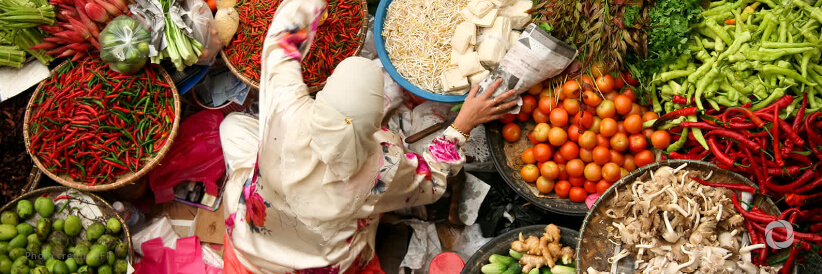Global food security is threatened in many and often overlapping ways, including the impact of COVID-19, conflicts, and persistent extreme climate conditions, a situation that makes market transparency and policy coordination critical, Qu Dongyu, Director-General of the Food and Agriculture Organization of the United Nations (FAO), said.
“It is essential that countries stop using trade measures that add to price increases and extreme price volatility, and harm those that depend on global markets for their food security,” Qu stressed.
He made the remarks at the opening of the 75th Session of the Committee on Commodity Problems (CCP), FAO’s longest-established technical committee. The CCP reviews global issues that affect the production, trade, distribution, consumption, and prices of food and agricultural products. It deliberates key issues, examines the effects on food security, and makes policy recommendations.
Qu referred to the recently published 2022 edition of The State of Agricultural Commodity Markets (SOCO) that focused on the structural changes in the global agri-food markets, and on the role of trade measures in addressing environmental impacts.
“In spite of the current tendency to trade mostly within regions, multilateral trade remains the most efficient way to promote market access and economic growth for all, and only multilateral collaboration can effectively address global environmental challenges such as climate change,” the FAO Director-General said.
He also underlined the important role that trade can play for global food security and sustainability as it promotes food security and nutrition by linking food surplus regions with those in deficit.
Multiple threats to global food security
Qu pointed to a variety of challenges facing the world and their impact on food security, noting that:
- The ongoing conflicts, including the war in Ukraine, are causing increases in the prices of food, feed, fuel, and fertilizers.
- The FAO Food Price Index reached a record high in March 2022 of almost 160 points and has only decreased slightly since then.
- The 2022 State of Food Security and Nutrition in the World (SOFI) report, released on 6 July, shows that up to 828 million people suffered chronic hunger in 2021. This represents an increase of 150 million since the outbreak of the pandemic.
Qu was clear about the key role trade must play in solving these problems and in achieving the 2030 Agenda and the Sustainable Development Goals.

